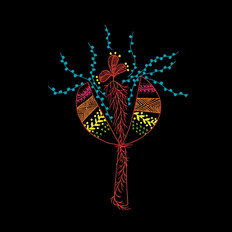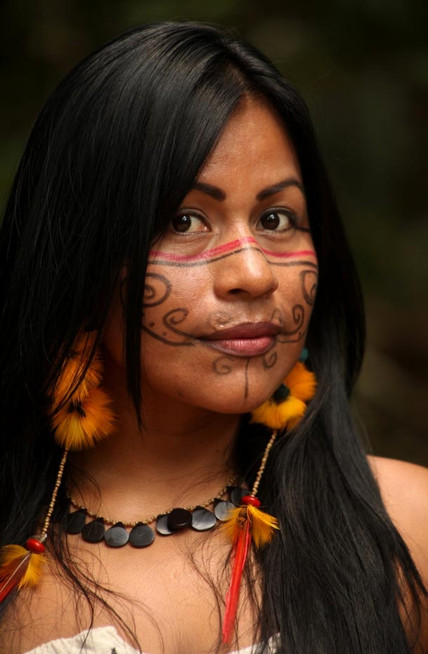
Indígenas.br - Indigenous Music Festival - Schedule 07/09
Day 07/09 – Tuesday – 7:00pm
Documentary show
— Guajajara & Kanela* Indigenous Stories and Songs — Kanela Ramkokamekrá People — Escalvado Village — Kanela Indigenous Land — Fernando Falcão (MA) — Direction: Diego Janatã and Djuena Tikuna — 2021
— Iburi — Tikuna Trumpet — Direction: Edson Matarezio — 2014
Chat
— Ritual and Music — The New Young Young Tikuna Party — Edson Matarezio and Djuena Tikuna. Mediation: Magda Pucci
Guajajara & Kanela Indigenous Stories and Songs — Kanela Ramkokamekrá People — Escalvado Village — Kanela Indigenous Land — Fernando Falcão (MA)
The Kanela Ramkokamekrá are part of the immense Timbira family, which other peoples are also recognized, including the Krikati in Maranhão, the Kraho no Tocantins and the Kykatejê in Pará.
The songs presented for this documentary are a small sample of the vast musical repertoire celebrated at the festive ceremonies entitled Amjkin, of which stand out the Pepka hác ritual for the appointment of Timbira leaders; the Tepyarkwá, the great Fish Festival that brings together many guests; and Kokrit, the party of masks.
The colors and sounds stand out in the landscape of the Maranhão Cerrado. The controversial red clay road, which tears the Kanela Indigenous Land, opens the way for the farms of the region, and also takes us to the central courtyard of the Escalvado village, still in a circular shape, characteristic common to these peoples, and it is from there that the Ramkokamekra corners echo from dawn inside.
Director: Diego Janatã and Djuena Tikuna
Year: 2021
Singers/Testimonials:
Marinaldo Kenikun Kanela
Justin Keniavile Kanela
Osmar Kalohle Window
Suely Konikree Kanela
Iburi - Tikuna Trumpet
This documentary records the process of construction and execution of the Iburi trumpet, by the Ticuna Indians, an instrument that is played during the New Girl Festival, a ritual of women’s initiation of the Ticuna. The girl who has been menstruated for the first time will be held until her Party is ready, at the end of which she will leave seclusion. Behind the place of seclusion will be the instruments that will advise the girl. Such instruments cannot be seen by women, children, and especially by the girl who is being initiated. In parallel with the construction of the Iburi, the film shows the story of To’oena, the “first young girl” who, in the time of the myth, broke this taboo and paid with her own life.
Direction, screenplay and photography: Edson Tosta Matarezio Filho
Genre: Documentary
Realization: Image and Sound Laboratory in Anthropology (LISA-USP)
Support: FAPESP
Duration: 15 min
Year: 2014
Chat - Ritual and Music - The New Young Young Tikuna Party
Participants: Edson Matarezio and Djuena Tikuna
Magda Pucci Mediation
Studies in Indigenous Ethnomusicology in Brazil have been expanding increasingly since the 1980s and present, in academic format, the different ways of existing and making music from different peoples.

